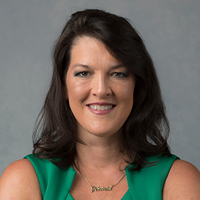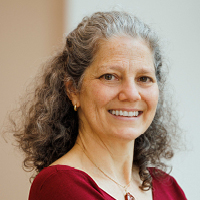Rollins Ask an Expert
Rollins thought leaders share their insights on key public health issues.

Expert: Lauren McCullough, PhD, Associate Professor of Epidemiology
Have any surprising findings come out of your recent breast cancer research?
ANSWER
In several of our projects, we are trying to understand the role of place in whether people die of breast cancer. One finding consistent across several studies is that for white women, neighborhoods matter a lot. Meaning, white women who live in deprived neighborhoods have worse breast cancer outcomes than those who live in better neighborhoods. For Black women, this is not the case. It doesn’t matter if they live in a more affluent neighborhood; they are still having worse outcomes than one would expect. We can then assume that there are factors in treating marginalized, minority women that aren’t accounted for by neighborhood, such as the biases of health care institutions or the day-to-day discrimination that may accelerate tumor growth and treatment response.
Expert: Dabney P. Evans, PhD, Associate Professor of Global Health and Executive Director of the Emory University Institute of Human Rights
What should policymakers do to help survivors of intimate partner violence?
ANSWER
The No. 1 need in the U.S. is more funding for domestic violence agencies and more flexible funding to use on things like housing, shelters, transportation, and financial resources for survivors to live separate lives from their abusers. We have a housing and a shelter shortage. Shelters are not desirable locations, but we have to make them available for people who are in crisis and have nowhere else to go. Likewise, if the safest place to go is a cousin’s house out of town, they may not have the transportation to get there. Survivors are often in circumstances where the partner may have controlled their finances, transportation, or ability to work, so both short- and long-term support are necessary.
Expert: Jithin Sam Varghese, PhD, Assistant Research Professor of Global Health
How can your findings about shared blood pressure in married couples inform future public health interventions?
ANSWER
It's a way to identify people who do not know if they have the disease through their partner, and to identify new ways of incentivizing blood pressure screening and management at the policy level, especially in populations with high rates of undiagnosed and uncontrolled blood pressure. Now, early detection of hypertension and management of blood pressure is important because it can prevent complications like heart disease and stroke. It can also help public health departments better understand the burden in their communities and provide new opportunities for raising awareness for healthy living at the family level. From a clinical perspective, it may be helpful to treat couples as opposed to individuals—encouraging patients to consider joint management strategies and holding each other accountable. And from the science standpoint, the mechanism of how couples develop blood pressure together is important to understand.
Expert: Penelope Howards, PhD, Associate Professor of Epidemiology
What effects can lupus have on women’s health?
ANSWER
One important fact to know about lupus is that it can affect multiple organs, including both the kidneys and the heart. Because of that, women with lupus are more likely to have cardiovascular events prior to menopause. Although women with well-controlled lupus can have healthy pregnancies, they are at greater risk of complications during pregnancy, and it can also influence birth outcomes. But we don't want the message to be that women with lupus shouldn't get pregnant. It’s more about making sure that there's clear communication about the benefits of timing pregnancy to periods of low lupus activity, providing support for women, and monitoring them in order to identify potential complications early.
ROLLINS ASK AN EXPERT is an ongoing series from the Rollins School of Public Health that aligns research experts with pressing public health topics. The questions and answers featured here are excerpts from longer articles published on the Rollins News Center. View articles from this series and more at: sph.emory.edu/news.



